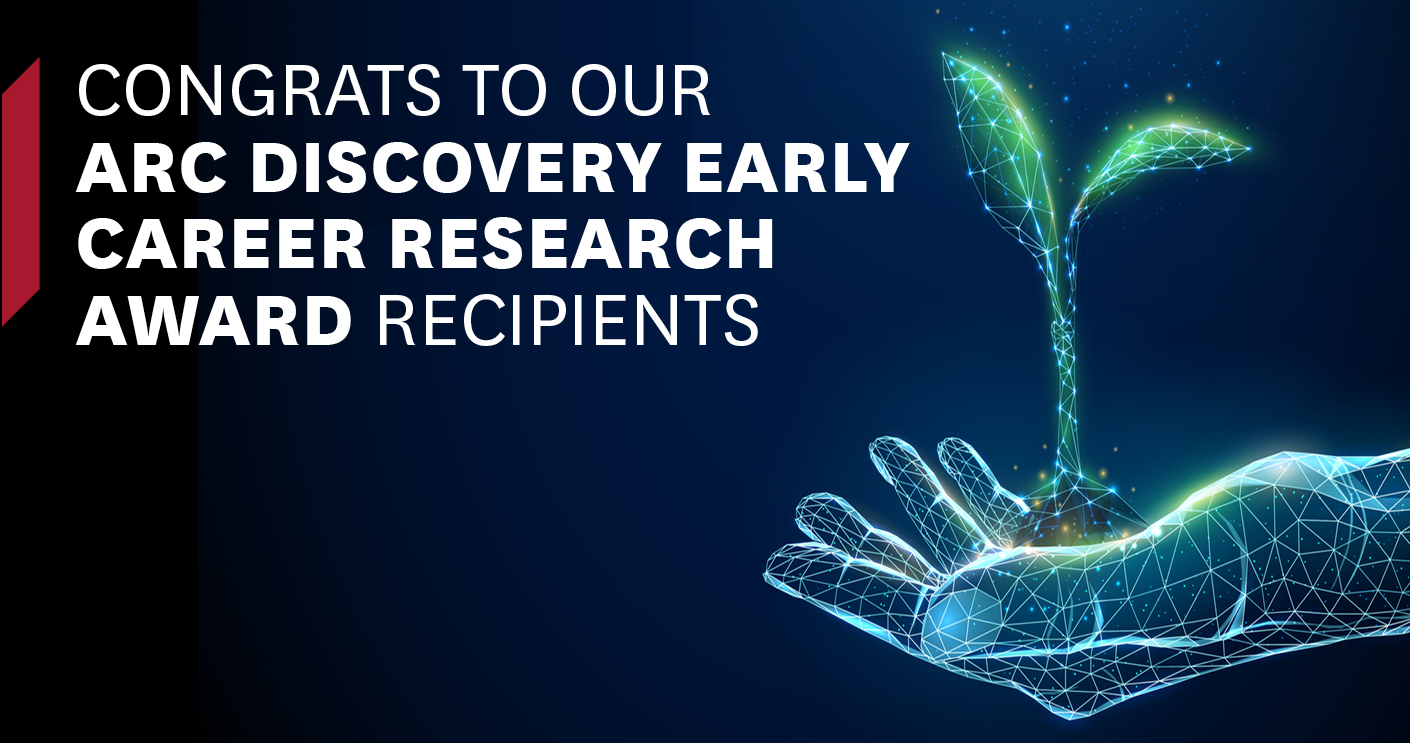Nine rising star researchers have had projects funded at Macquarie University in the Australian Research Council’s latest Discovery Early Career Research Award (DECRA) round
Projects were funded across all four Macquarie faculties, with funding totalling $3,761,114. Macquarie edged out a number of Go8 universities to place 7th in Australia for number of projects funded.
Deputy Vice-Chancellor (Research) Professor Sakkie Pretorius says our DECRA success is an encouraging reminder that the future of Macquarie research is bright.
“We have significantly improved our DECRA success rate in the last few funding rounds, with our Early Career Researchers continuing to demonstrate research excellence across a pleasingly diverse range of disciplines,” he says. “I commend our successful recipients on these innovative projects and look forward to seeing the impact of their findings.”
Dr Benjamin Ashton in the Department of Biological Sciences will use funding of $436,032 for a project looking at the relationship between the social environment and cognition. Mr Ashton will combine meta-analytical and experimental approaches to gain a new understanding of the factors which govern cognitive evolution – one of the longest-running debates in evolutionary biology.
Dr Eliane Deschrijver will join the Department of Psychology, with $452,285 of funding to deliver a unifying theory of human sociality that can account for why the human brain may want to avoid conflict between own and others’ ways of thinking. She will use behavioural experiments, innovative functional magnetic resonance imaging (fMRI) design and philosophical approaches to generate knowledge on the social neuroscience of political and religious group behaviour. This knowledge may be used to develop tools to counteract religious and political radicalisation in societies and online spaces.
Associate Professor Daniel Ghezelbash in the School of Law receives $444,851 to identify fairer and more efficient processes for processing asylum claims. Comparing and evaluating ‘fast-track’ asylum processing methods in Australia, the United States, the United Kingdom and Switzerland, Associate Professor Ghezelbash will produce evidence-based law reform and policy recommendations to improve Australia’s asylum processes.
Dr Marnie Graham in the School of Social Sciences is awarded $453,505 for a project looking at Indigenous tourism and how it can positively impact attitudes and behaviours relating to sustainability. Recognising that Indigenous custodians are increasingly recognised as leaders in sustainable land management, Dr Graham will work with NSW-based Indigenous tour operators to identify their impact as change agents and deliver policy-relevant materials to nurture impactful sustainability learning activities in the sector.
Dr Solene Hameau in the Department of Cognitive Science will use $417,505 in funding to investigate why, as we age, we have trouble retrieving words when we speak but not when we read aloud. The project will advance understanding of how ageing affects the cognitive systems involved in speaking and reading, and investigate whether reading aloud can support word retrieval.
Dr Raheel Hashmi receives $420,582 for a project in the School of Engineering that aims to develop affordable and compact reconfigurable antenna systems for use in satellite-terminals. The antenna systems will act as the ‘enabling’ chip in providing internet connectivity to millions of people who are currently unconnected or poorly connected, helping to close the digital divide and enabling remote jobs in the Australian economy.
Dr Douglas McConnell will join the Department of Philosophy for a $343,772 project that attempts to solve the philosophical problem of whether moral character motivates action. Dr McConnell will apply new knowledges around the concepts of moral identity and narrative self-constitution to professional settings, recommending ways that professional moral identities might be developed to improve public trust in professions.
Dr Haoran Ren in the Department of Physics and Astronomy receives $434,000 to design and interface multi-functional metasurfaces – nano-structured ultrathin surface devices – with optical fibres by using 3D laser printing technology. These novel metafibres will offer superior imaging capabilities, with potential for use in clinical tools such as fibre-optic endoscopes to aid rapid, accurate disease diagnosis.
Dr Claire Wright in the Department of Management is awarded $358,582 to undertake the first comprehensive history of women in corporate leadership in Australia across the twentieth and early twenty-first centuries. By developing a deeper knowledge about women’s participation in corporate leadership in Australia, their pathways to leadership positions, and their long-term impact on corporation strategy and decision-making, more effective strategies can be designed to improve the success of women in leadership.


 Back to homepage
Back to homepage
Comments
We encourage active and constructive debate through our comments section, but please remain respectful. Your first and last name will be published alongside your comment.
Comments will not be pre-moderated but any comments deemed to be offensive, obscene, intimidating, discriminatory or defamatory will be removed and further action may be taken where such conduct breaches University policy or standards. Please keep in mind that This Week is a public site and comments should not contain information that is confidential or commercial in confidence.